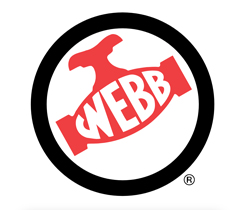Pipeline regulations to tighten more
Pipeline regulation will get somewhat more stringent over the next four years. Congress has approved the Pipeline Infrastructure Protection to Enhance Security & Safety Act of 2002, which both provides more oversight power and more research on further safety through 2006.
Under the new law, the Department of Transportation can order corrective action for lines it deems unsafe or vulnerable to terrorist attacks. The scale of fines for violations also goes up, with the maximum penalty for violations doubling to $1 million.
The law specifies that individuals who cause pipeline damage and fail to report it can become subject to criminal prosecution only if they knew or had reason to know of the damage. Individuals can be held responsible for the damage even if they didn’t act “knowingly and willfully,” but they can get lesser penalties if they promptly report damage. Government employees and contractors must notify pipeline operators if they engage in any activity that might damage lines.
The law also contains a whistle blower protection clause prohibiting operators and contractors from taking action against employees for reporting information, refusing to violate federal law or taking part in enforcement proceedings. Employees who think they have been discriminated against for whistle blowing can complain to the Department of Labor. But if the agency finds the complaint frivolous, it can award employers up to $1,000 in legal fees.
The bill requires both government and contract excavators receiving federal money to participate in one-call notification programs. The law authorizes $1 million a year in grants to states to run the systems.
Additionally, it provides another $500,000 a year to non-profits for technical assistance to reduce construction-related damage to underground lines. Within a year, the federal government must open a national toll-free number for one-call notification. And each operator must, within a year, review and update if necessary its public education program.
DOT can also give Pipeline Information Safety Grants of up to $50,000 to local non-profits to examine safety issues and increase public participation in official proceedings.
The bill also calls for some coordinated federal research. DOT and the Federal Energy Regulatory Commission will study the risks of increasing population and development along pipeline right-of-ways. Agencies must also unite to develop a five-year plan for studying and improving pipeline safety and reliability. DOT and the Department of Energy can each get $10 million in research money annually.
The National Institute of Standards & Technology can get $5 million a year, as the research plan includes standardizing safety requirements. Finally, DOT can spend up to two years studying specific structural risks caused by cable-suspension pipeline bridges.
Within three years, operators will have to abide by DOT -prescribed employee standards.
Briefly Speaking
-
- Congress can’t settle
The lame duck Congress that met after the November elections punted most of the decisions on energy matters, requiring the newly elected Republican Congress to start fresh.
A conference failed to come to agreement on energy legislation with many provisions that would have encouraged propane use, increased assistance to low-income families and encouraged energy efficiency
-
- LP gas prices
Residential propane prices in early December stood at 118.7 cents/gallon, up 6.7 cents from a year earlier. Wholesale prices went up 1 cent per gallon over the year to 56 cents. Despite a chilly November, inventories remained in the average range,
according to the Energy Information Administration.
-
- Propane’s share
Propane provided less than 1 percent of utility generation in the United States in 2001, the EIA reports.
















